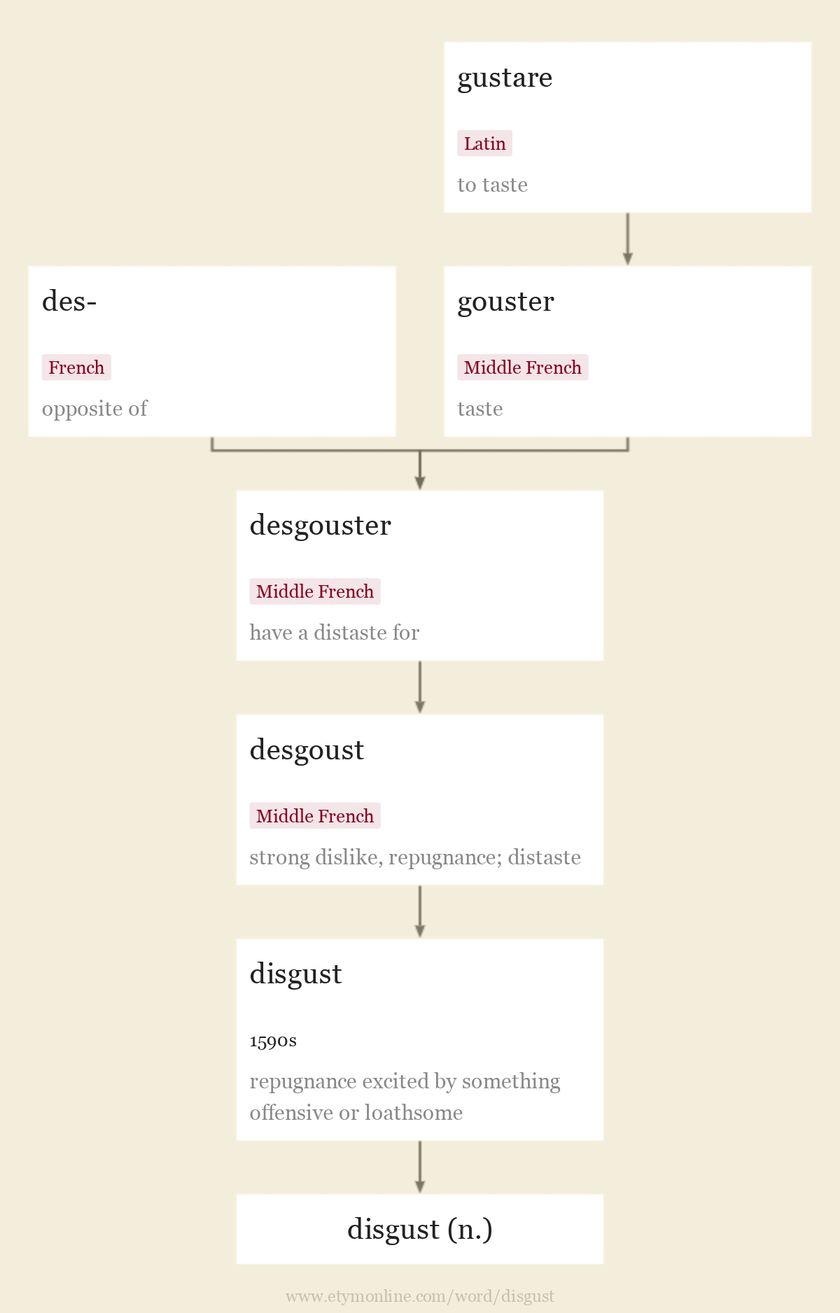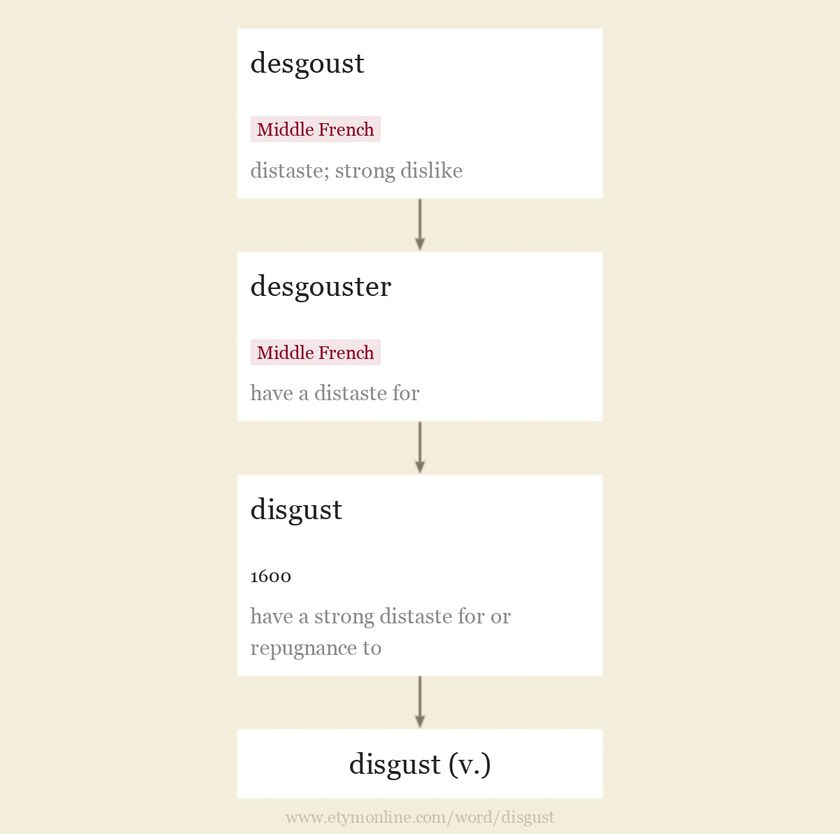| 词源 |
disgust n.1590s, "repugnance excited by something offensive or loathsome," from French desgoust "strong dislike, repugnance," literally "distaste" (16c., Modern French dégoût), from desgouster "have a distaste for," from des- "opposite of" (see dis-) + gouster "taste," from Latin gustare "to taste" (from PIE root *geus- "to taste; to choose"). The literal sense, "distaste, aversion to the taste of," is from 1610s in English. disgust v. c. 1600, "have a strong distaste for or repugnance to," from French desgouster "have a distaste for" (16c.), from desgoust "distaste," also "strong dislike" (see disgust (n.)). The sense has strengthened over time in English, and subject and object have been reversed; the older use looks like this: "It is not very palatable, which makes some disgust it" (1660s). The reverse sense of "to excite nausea and loathing in" is attested from 1640s. Related: Disgusted; disgusting. updated on October 13, 2021 |

